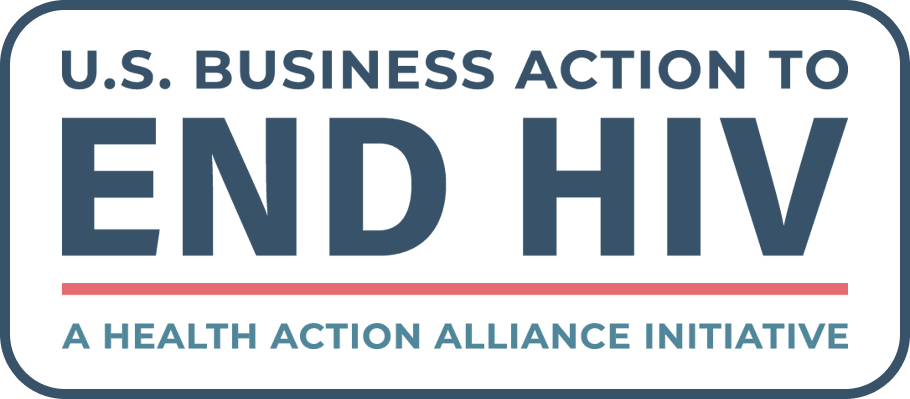
| TBD Panels | 3-Panel STD Test | 9-Panel STD Test | 5-Panel STD Test | 3 Site: Oral, Rectal, Genital |
|---|---|---|---|---|
| Chlamydia |  |  |  |  |
| Gonorrhea |  |  |  |  |
| Trichomoniasis |  |  |  | |
| HIV (Ag/Ab) |  |  | ||
| Syphilis |  |  | ||
| Hepatitis B & C |  | |||
| HSV I |  | |||
| HSV II |  |
- 8 E Charleston Blvd
- Las Vegas, NV 89104
- Tues and Fri
- 10 AM – 2PM
- Contact us:
- +1 (702) 909-0554
- hello@tbd.health

| TBD Panels | 3-Panel STD Test | 9-Panel STD Test | 5-Panel STD Test | 3 Site: Oral, Rectal, Genital |
|---|---|---|---|---|
| Chlamydia |  |  |  |  |
| Gonorrhea |  |  |  |  |
| Trichomoniasis |  |  |  | |
| HIV (Ag/Ab) |  |  | ||
| Syphilis |  |  | ||
| Hepatitis B & C |  | |||
| HSV I |  | |||
| HSV II |  |

What Is Syphilis? Syphilis is a sexually transmitted bacterial infection caused by Treponema pallidum. Although it can cause serious problems if left untreated, there key thing to remember is that there are excellent treatments for this infection if identified early.
Syphilis is on the rise and the CDC has reported that there has been a 74% increase in new cases from 2015 to 2019. But there's no need to worry! We're here to break down what Syphilis is, the common symptoms, and how to access the right treatment option for you.
What Are The Symptoms?
Syphilis’ nickname is “The Great Pretender” because its symptoms may appear similar to various illnesses, such as rashes. The symptoms of syphilis are also known to change over time, and typically occur in a few different stages. Sometimes, people do not notice all these stages and sometimes the stages may overlap, which can be confusing. The easiest and safest way to know is to get tested and/or consult with a healthcare professional.
TBD Recommends: 5-Panel STD Test
Primary Stage: The Chancre
Typically after 3 weeks after a person is first exposed to syphilis, they may develop a chancre. A chancre or a syphilis sore is a painless, firm, red ulcer at the site of inoculation, or the site at which you were initially exposed during sex. This could be on external or internal genitalia, around the mouth, and/or the rectum or anus, depending on the type of sex that you had. For example, if you have a vagina and were exposed to a sore on a penis during vaginal sex, you may have this chancre inside the vagina. Over about 3-6 weeks, this chancre heals heals on its own, but the infection still remains.
Secondary Stage: Rashes
After the initial infection, one may notice some abnormal rashes or sores in the mouth, vagina, and/or anus that come and go. A syphilis rash often looks like rough, red or reddish brown spots that show up on the hands or bottoms of the feet. These rashes are typically not very itchy.
Some people may also notice flu-like symptoms, such as swollen lymph nodes, fevers, sore throat, patchy hair loss, headaches, unintended weight loss, muscle aches, and general significant fatigue.
These rashes typically go away by themselves, but can progress to other stages of syphilis if not treated.
Learn More: Understanding Syphilis
Latent Stage: No symptoms There is a period in which someone still has a syphilis infection alive in their body, but does not have any physical sign or symptoms. This can last for years.
Tertiary Stage: Widespread disease This occurs about 10-30 years after initial infection and only if left untreated. Most people with untreated syphilis won’t develop these symptoms. However, an untreated infection can lead to serious damage of your organs such as damage to heart and blood vessels, brain and nervous system, and potentially death.
While these stages and symptoms can sound scary, it’s important to remember that this is often very treatable and that our tests are really good at detecting infection throughout the stages.
How Is It Spread? You do NOT get syphilis from casual contact like sharing drinks or hugging. Syphilis is spread through person to person contact through direct contact with a syphilis sore (also called chancres) that are very contagious. This kind of contact can be spread through vaginal, anal, or oral sex. The tricky thing with these sores is that they can be present on internal or external parts of the body, such as the genitalia, anus or rectum, and mouth. Many people do not notice these sores when they have them.
How Can I Prevent Syphilis?
One important way to prevent syphilis is to prevent contact with potential sores or chancres that can spread the infection. Depending on what kind of sex you have, you can utilize internal or external condoms, dental dams, or other things to limit direct sexual contact and to help protect yourself.
If you notice that your partner has some symptoms like an odd rash or a genital lesion, consider talking to your partner(s) about other ways to have sexual intimacy without direct contact. The other key is to get tested and screened regularly and ask your partners to, as well. It’s your right to know their status. What Kind of Testing Is there? Testing is usually done with a blood test at your doctor’s office or with an at-home kit like tbd’s. Most tests look for antibodies, which are a sign that your body has been exposed to this infection and had an immune response. If antibodies are detected, we will do further testing to confirm that there is an infection.
At tbd, we use a fingerprick test to get a small sample of blood and look for signs of antibodies, meaning signs that you have been exposed to this in the past. If we do find signs of syphilis antibodies, this could mean that you currently have a syphilis infection or may have had one in the past. We would then work closely with you to make sure you have the confirmatory testing and receive the treatment you need.
For most of these tests, we are able to identify many infections about 1 month after the exposure, and most infections by at least 3 months after exposure.
Should I Get tested? We recommend testing if you 1) think you might have syphilis, 2) think you might have been exposed to someone who does, or 3) simply if you want to confirm that you don’t. ** What Does Treatment Look Like?** The treatment of syphilis depends on what stage of treatment you are in. Syphilis is commonly treated with an injection of an antibiotic, typically penicillin, which is very effective. Depending on how long you have had the infection and/or what symptoms you might have, you may receive one or two more injections. There are some other options for those who may be allergic to penicillin antibiotics that you can discuss with your healthcare provider.
If you get treated, it’s also important to have your partner(s) treated as well.
At TBD, if we find signs of syphilis, our trained clinicians will work closely with you to connect you to the next steps of testing and treatment that you need.
What is the History Behind Syphilis? While we now know that syphilis is an infection that can affect anyone, the history of syphilis around the world reflects the history and power dynamics of regions and sociocultural groups. Throughout history, this infection has gone by many names, often influenced by which groups were affected and which groups were blamed for the outbreak. In the late 15th century, war conditions facilitated the spread of this infection across Europe. For example, some Western Europeans called it “the French disease” while some French people called it the “Neapolitan Disease” [1]. The exact origin and spread of the syphilis infection is a long-debated topic, but we do know that this disease caused widespread problems across the world before the screening and treatment were discovered and made widely available as it is now.
More recently, syphilis is also a part of a dark period in U.S. public health history, in which the United States Public Health Service conducted an ethically unacceptable study in Alabama from 1932-1972. In this study, researchers chose to withhold appropriate treatment of syphilis to study participants, who were mainly black males with low incomes and their partners, causing significant harm to these communities [2].
References and Further Reading Tampa, M., Sarbu, I., Matei, C., Benea, V., & Georgescu, S. R. (2014). Brief history of syphilis. Journal of medicine and life, 7(1), 4–10. < https://www.ncbi.nlm.nih.gov/pmc/articles/PMC3956094/> https://www.cdc.gov/tuskegee/timeline.htm https://www.cdc.gov/std/syphilis/default.htm
This article provides information about sexual health, healthcare and/or related subjects. The blog content and any linked materials herein are not intended to be, and should not be construed as a substitute for, medical or healthcare advice, diagnosis or treatment. Any reader or person with a medical concern should consult with an appropriately-licensed physician or other healthcare provider. This blog is provided purely for informational purposes. The views expressed herein are not sponsored by and do not represent the opinions of TBD Health Inc.
Email us and a team member will get back to you within 24 hours. We’re also available via call or text at +1 (702) 909-0554
Sign up below to get 10% off
By providing my email address, I agree to receive email with marketing communications from TBD Health including news, promotions and exclusive offers. I understand that I can opt out at any time by using unsubscribe links. Visit our Terms of Service or Privacy Policy for more information.









